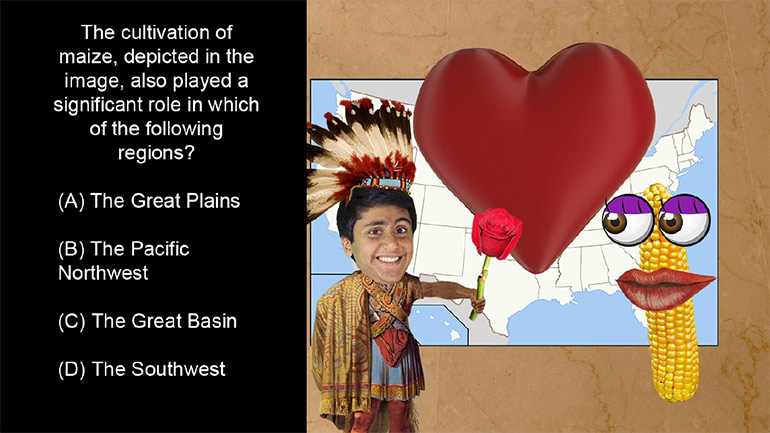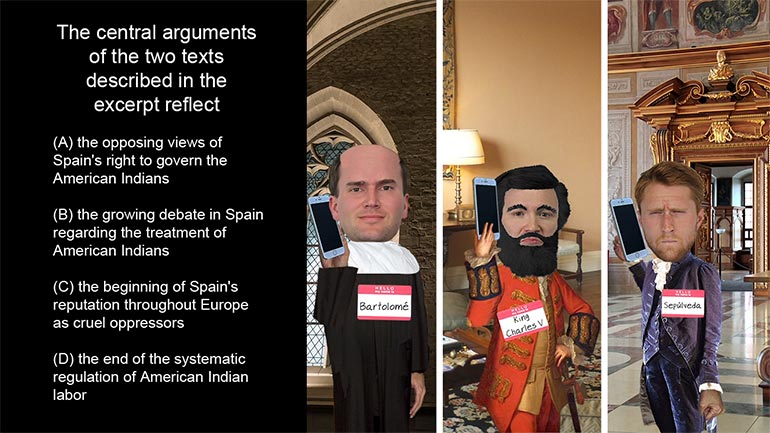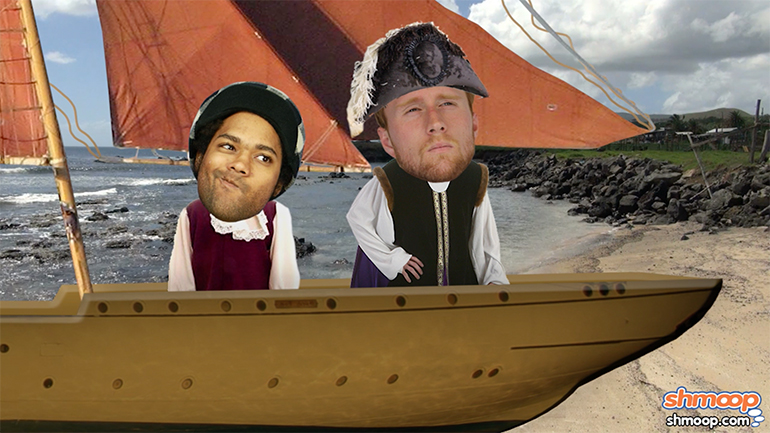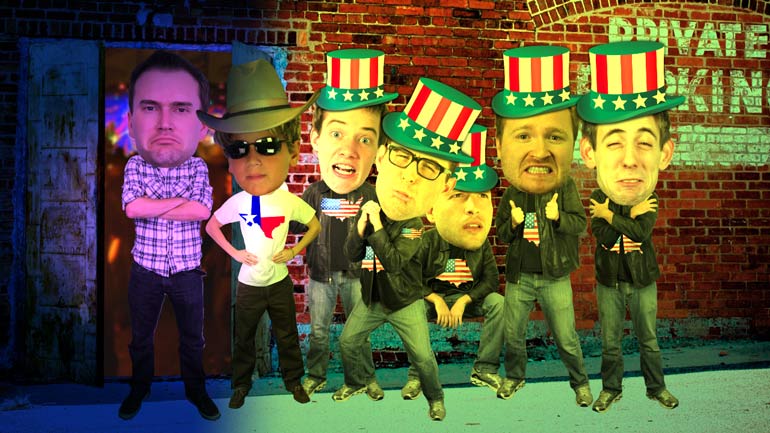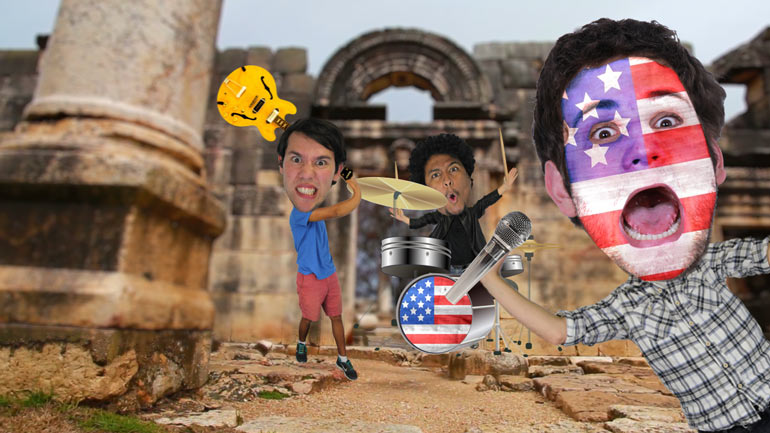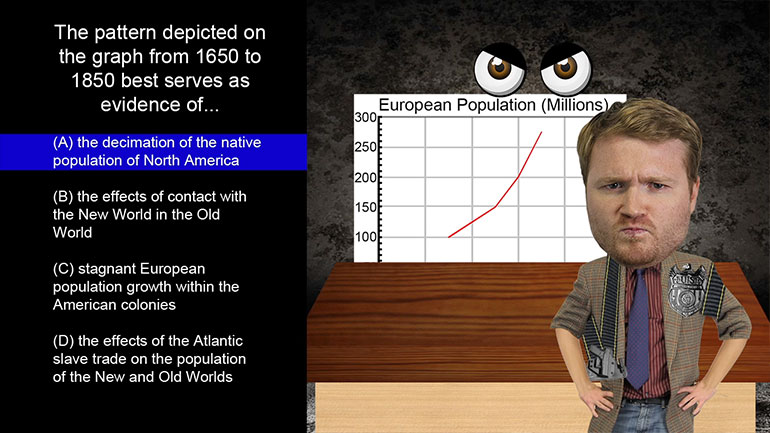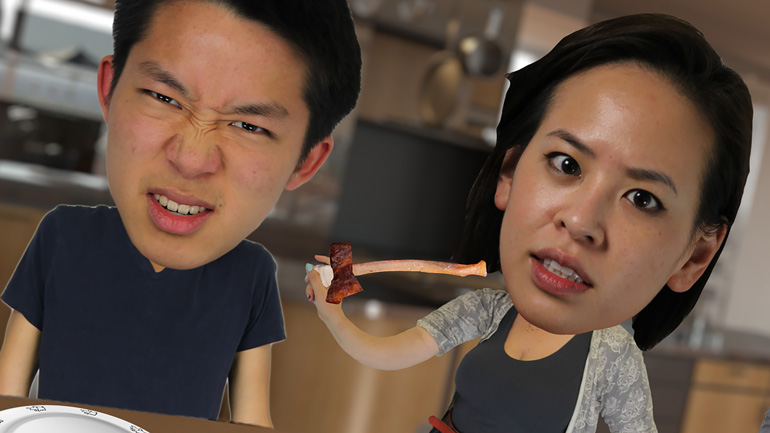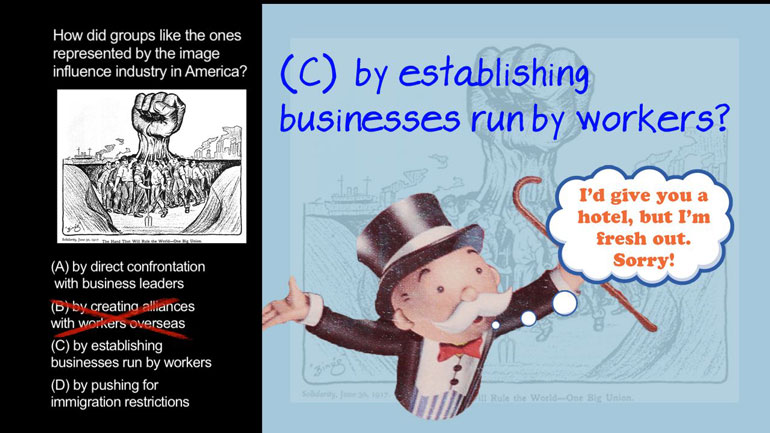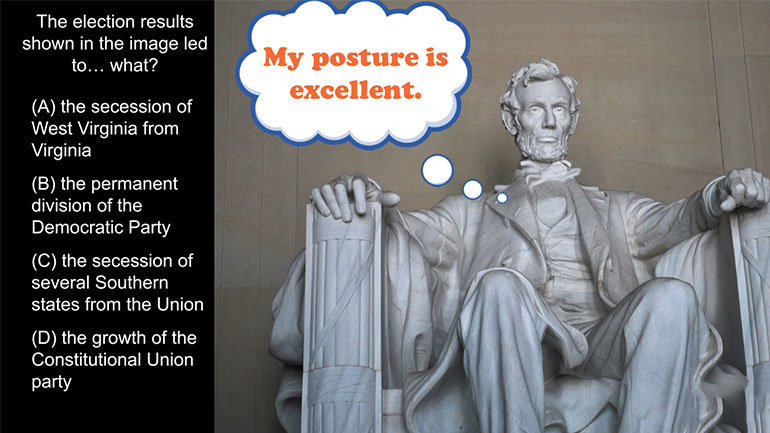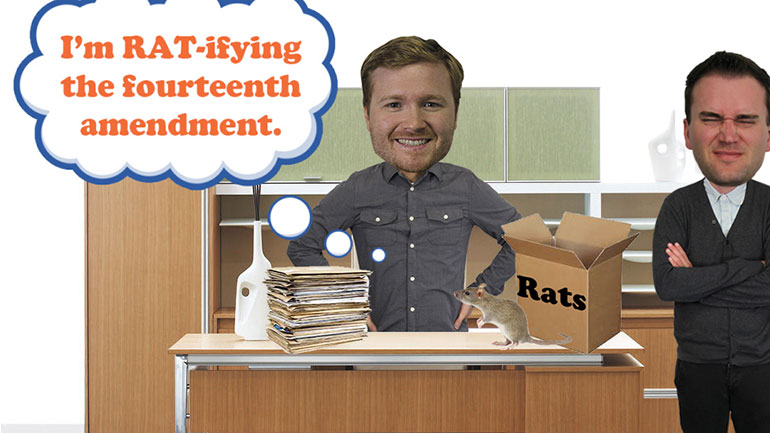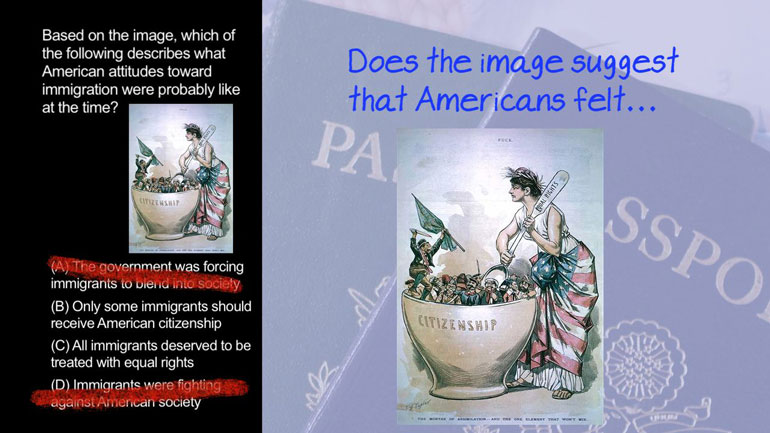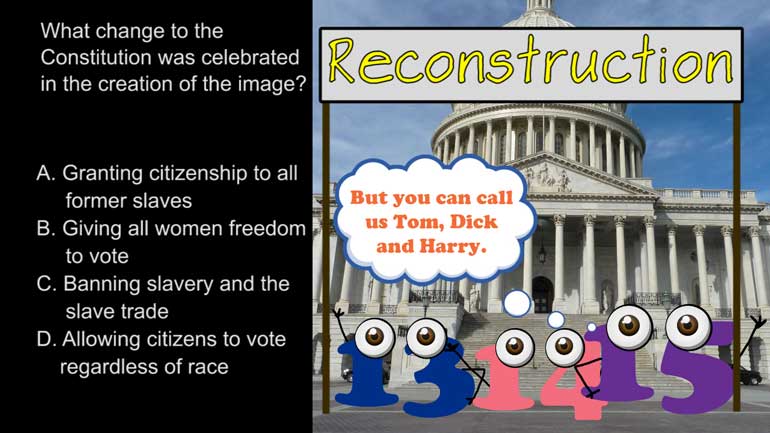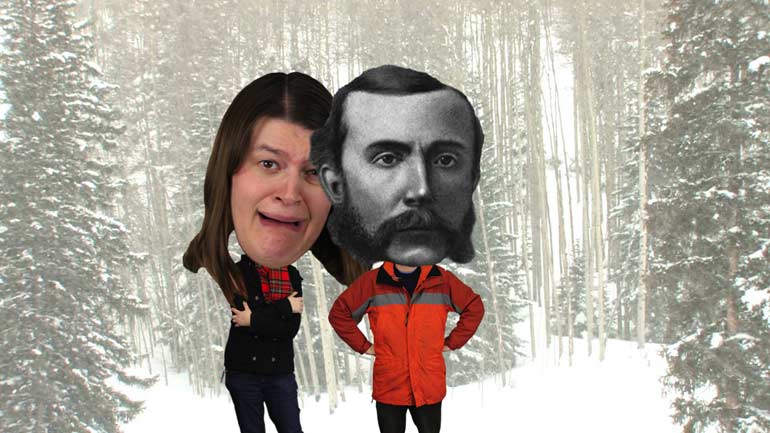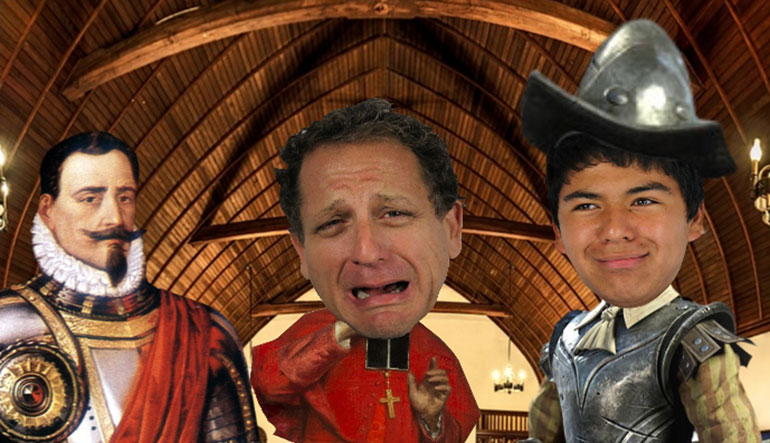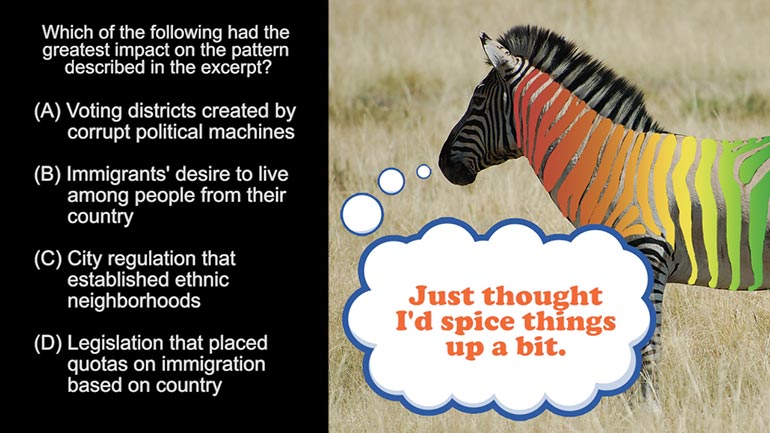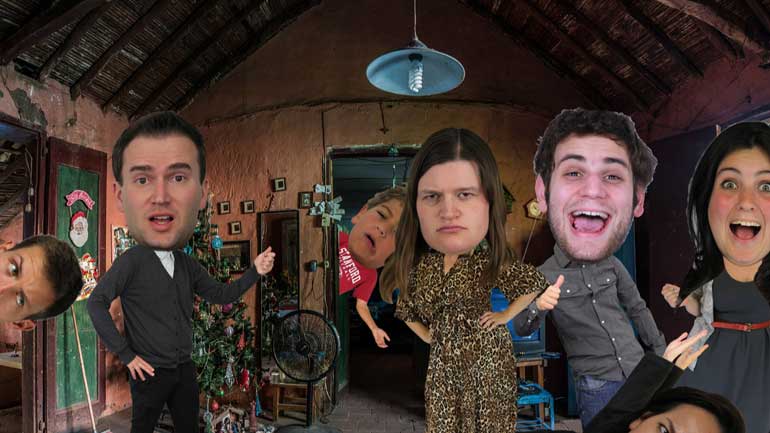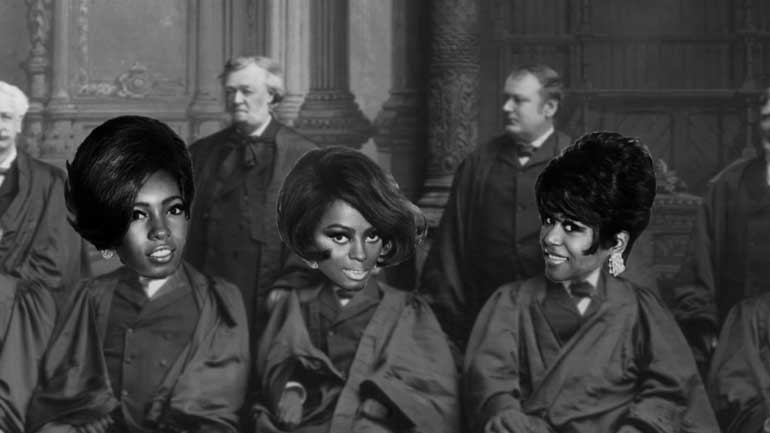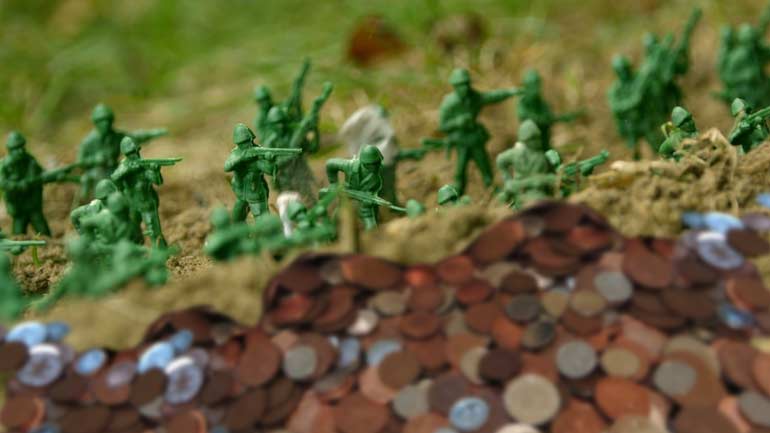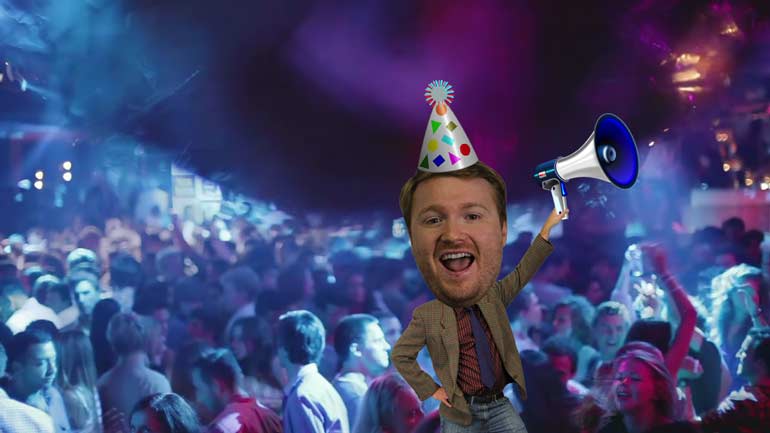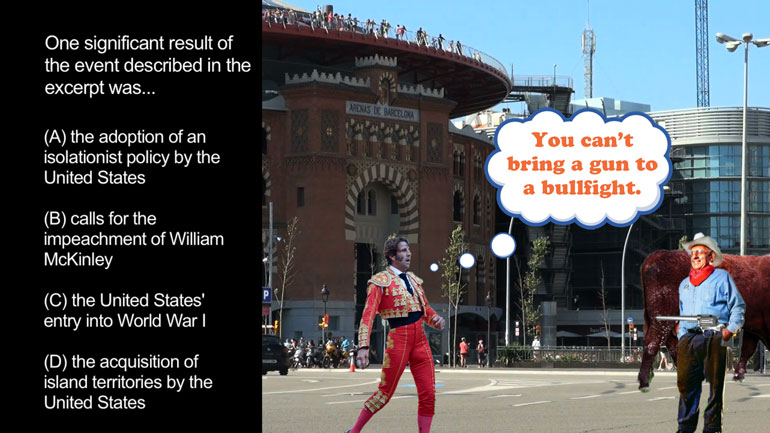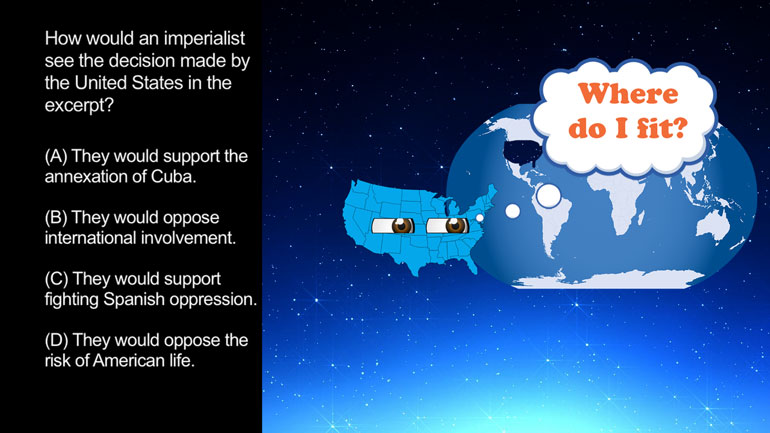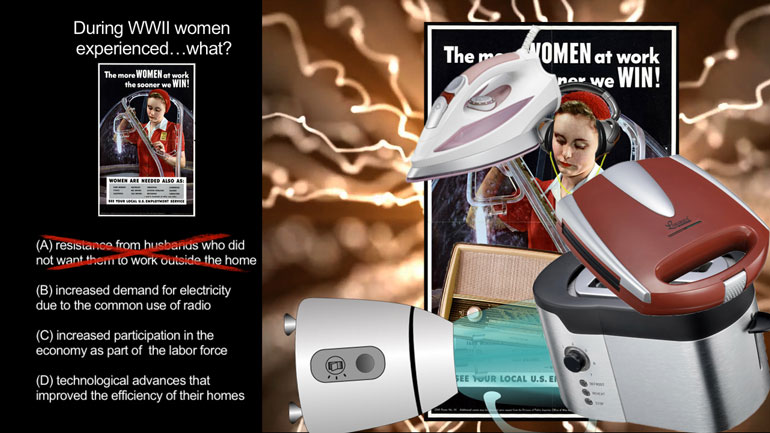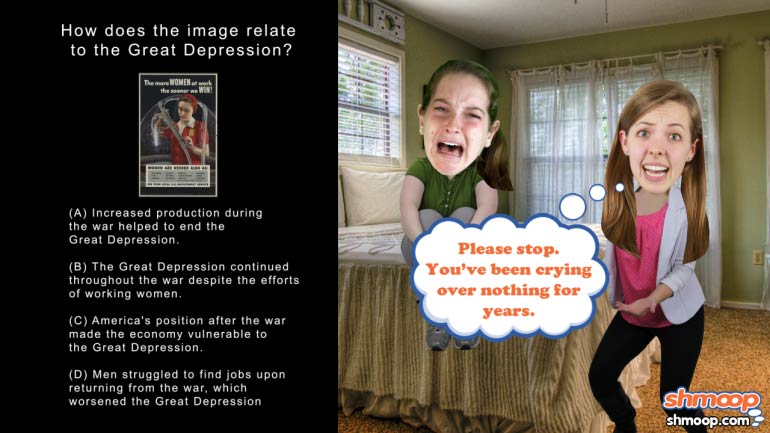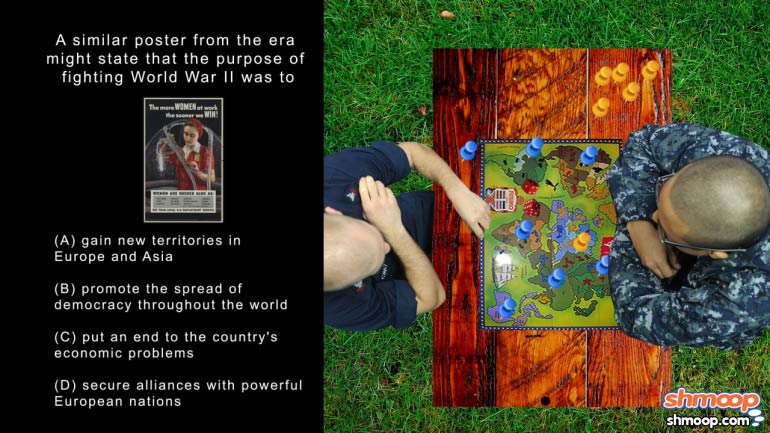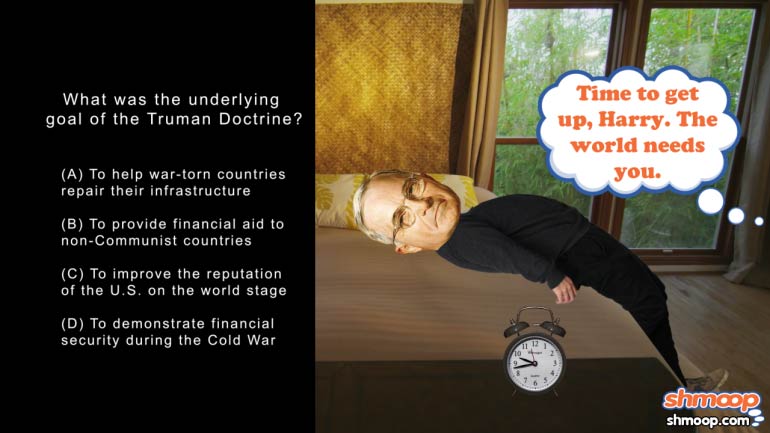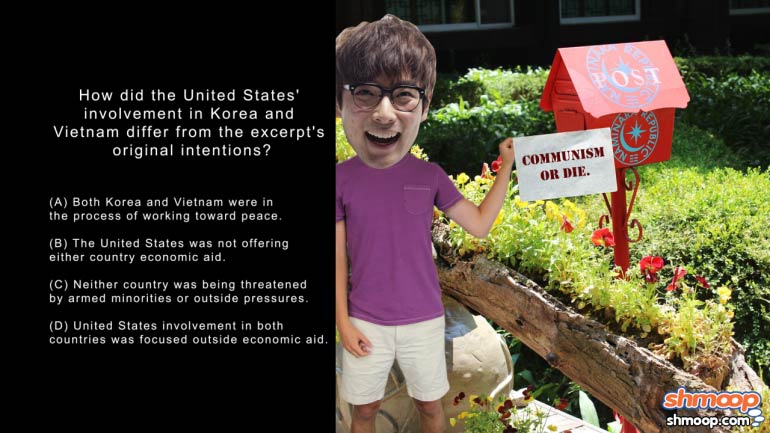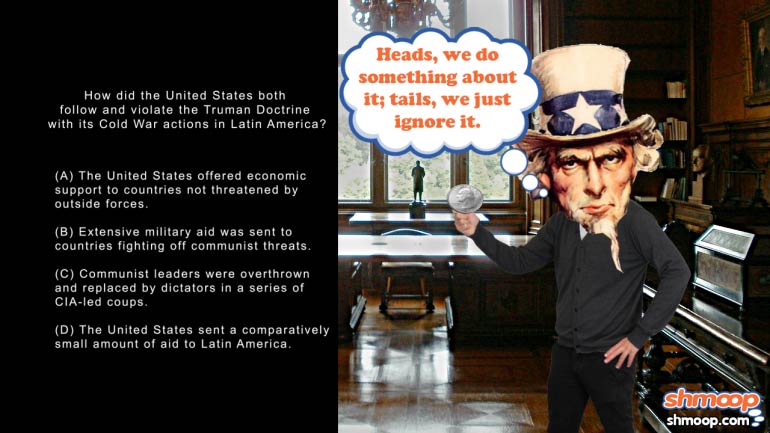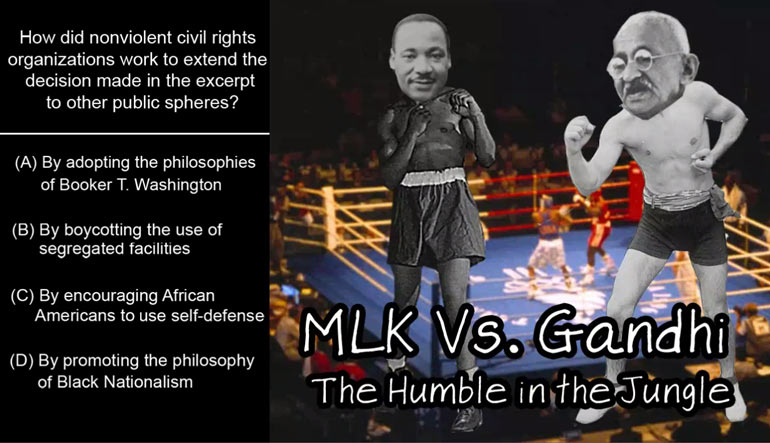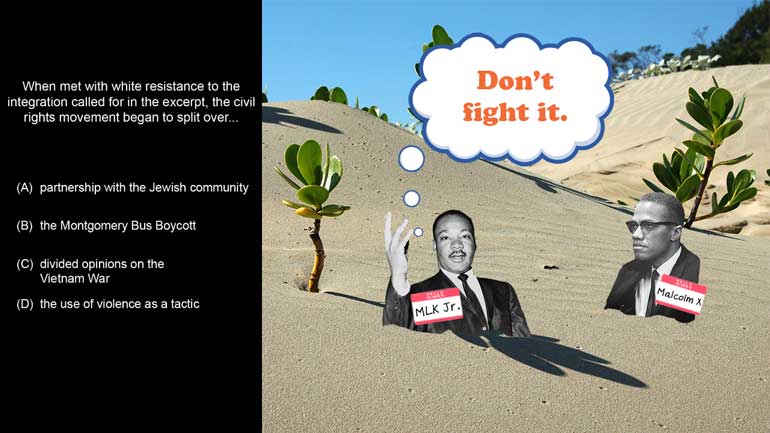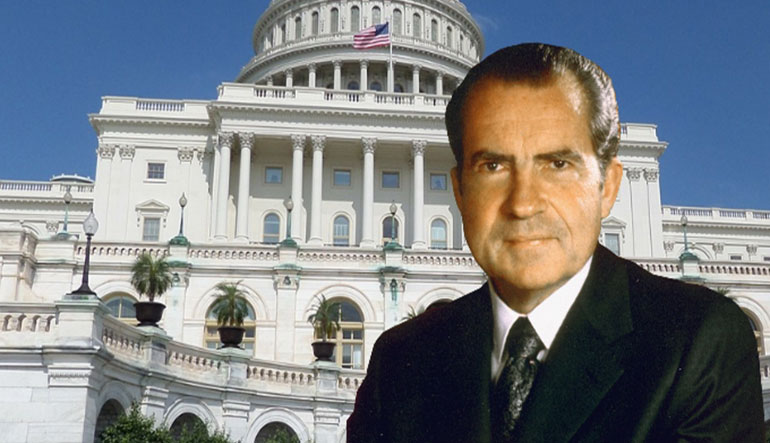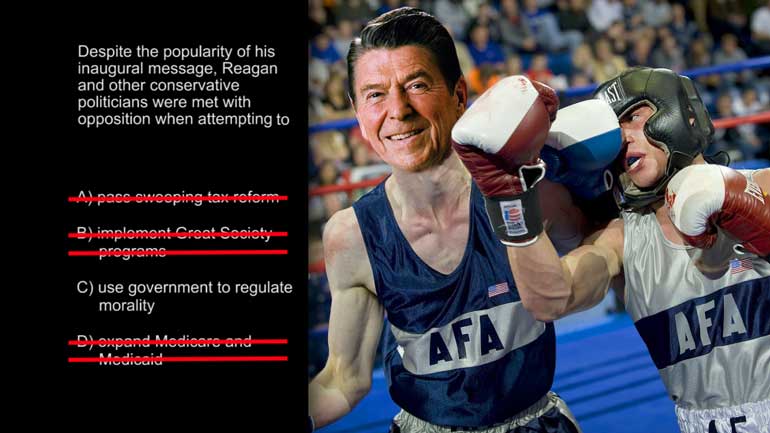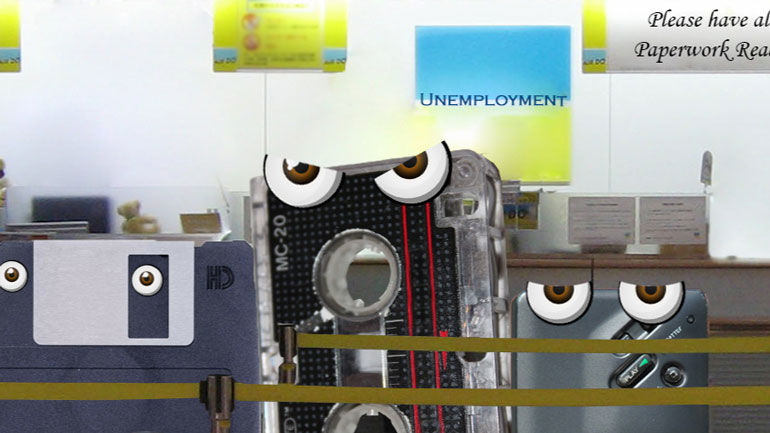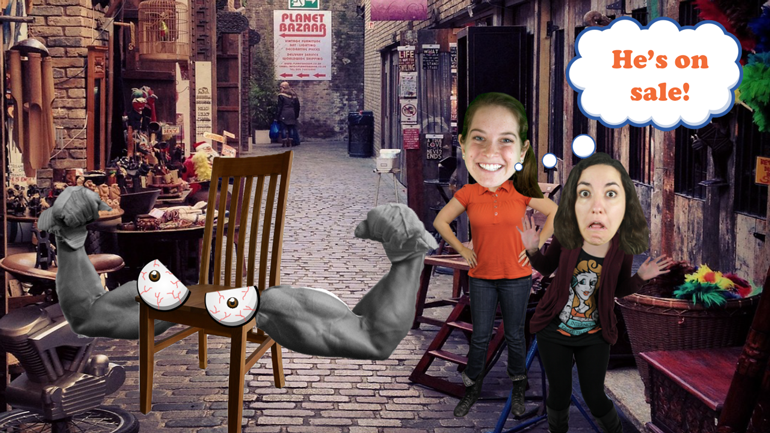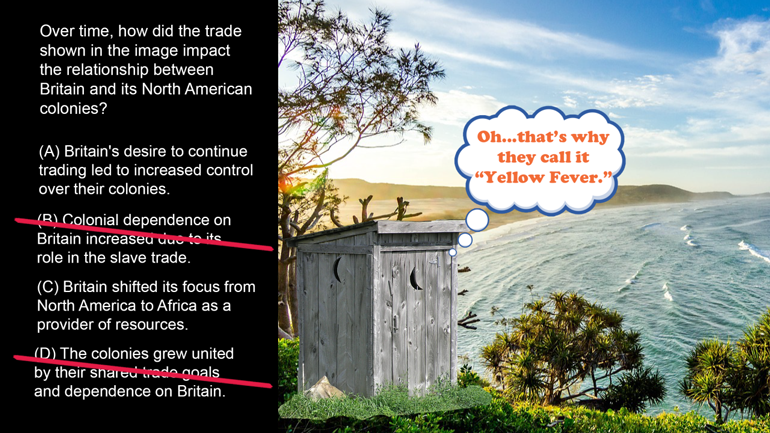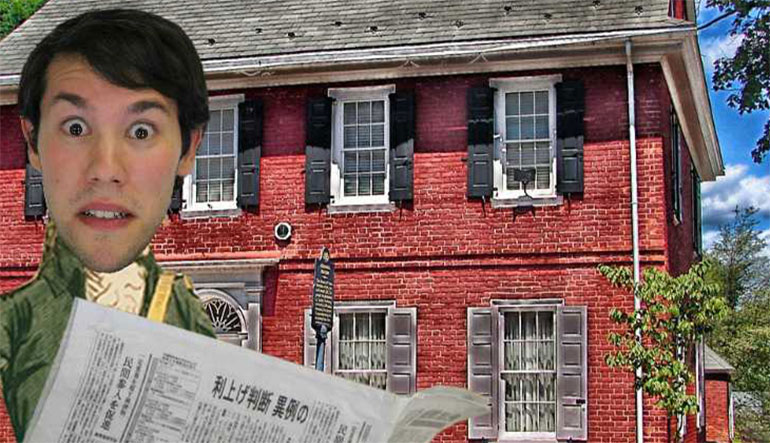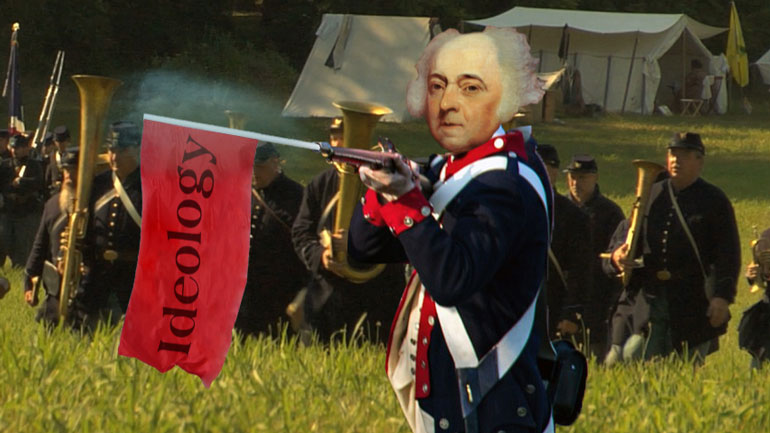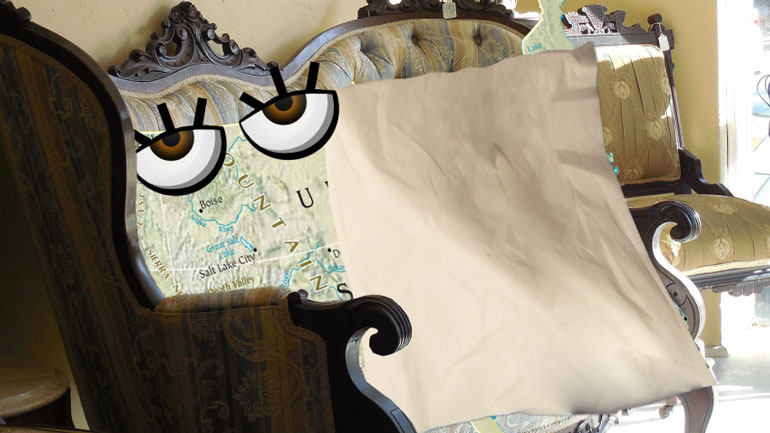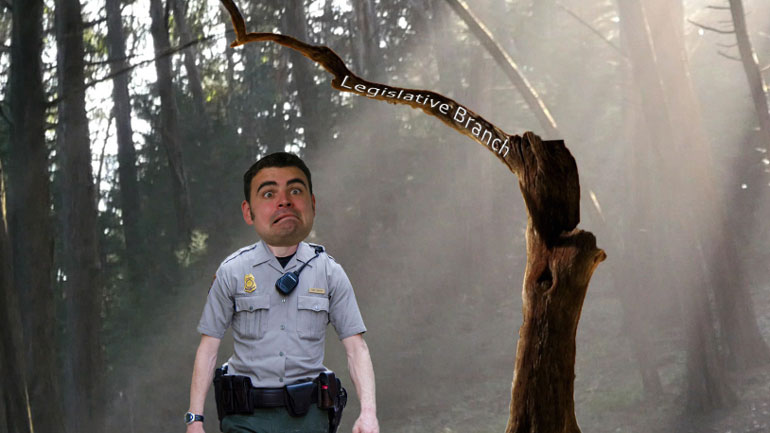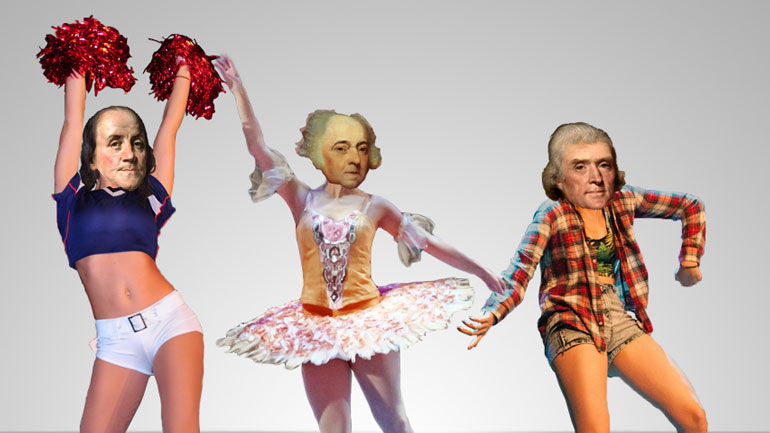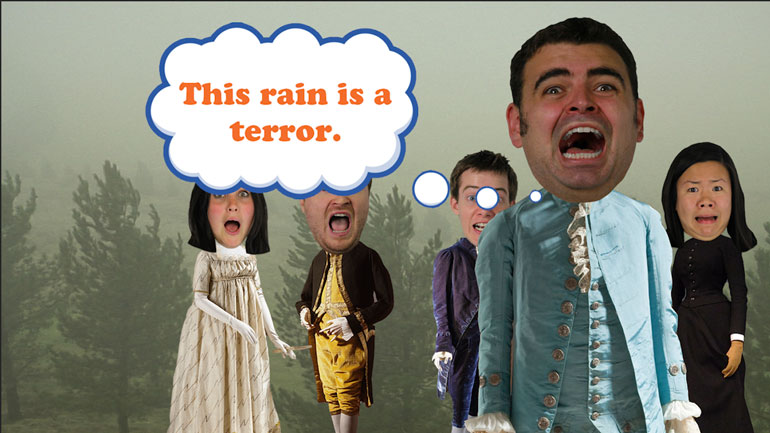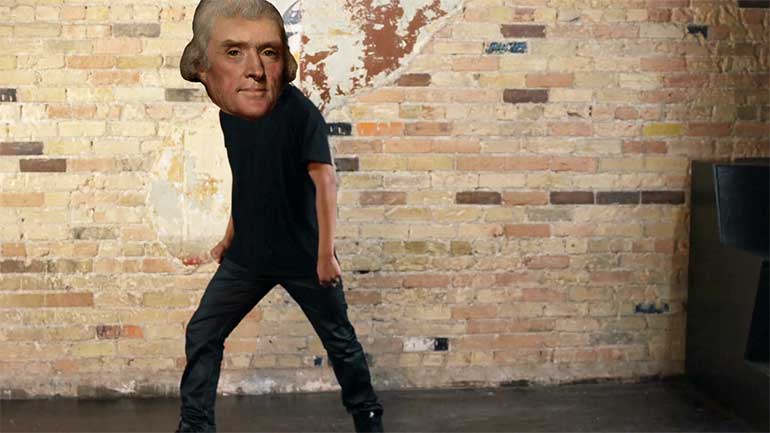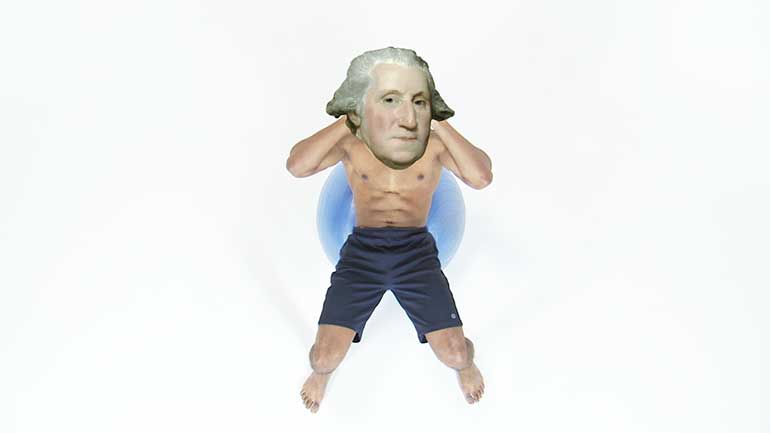ShmoopTube
Where Monty Python meets your 10th grade teacher.
Search Thousands of Shmoop Videos
AP U.S. History Videos 167 videos
AP U.S. History 3.1 Period 2: 1607-1754. Which of the following contributed most directly to the process seen in the image?
AP U.S. History Period 1: 1491-1607 Drill 3, Problem 2. The cultivation of maize, depicted in the image, also played a significant role in which of...
AP U.S. History 3.2 Period 4: 1800-1848. The goals presented in the excerpt have the most in common with which of the following?
AP U.S. History Exam 1.40 169 Views
Share It!
Description:
AP U.S. History Exam 1.40. During WWII, women experienced...what?
Transcript
- 00:00
[ musical flourish ]
- 00:03
And here's your Shmoop du jour, brought to you by the Axis powers,
- 00:07
a calculus teacher's secret weapon.
- 00:10
All right, based on the image,
- 00:11
during World War II, women experienced... what?
Full Transcript
- 00:15
And here are your potential answers.
- 00:17
[ dog barks ]
- 00:17
[ mumbles ]
- 00:22
Well, World War II was a big moment for our country.
- 00:25
For a few years, it seemed like everyone put aside their differences
- 00:28
and focused on one thing.
- 00:30
And no, it wasn't the movie Casablanca.
- 00:32
It was fighting the Axis powers.
- 00:35
So let's see how this global conflict
- 00:37
engendered change for the female half of the population.
- 00:41
Based on the image, did women during World War II experience A -
- 00:44
resistance from husbands who did not want them
- 00:47
to work outside the home?
- 00:49
Well, actually, most husbands were overseas fighting in the war,
- 00:52
so it was more likely that women encountered resistance from
- 00:55
kids not wanting to eat their vegetables. So it's not A.
- 00:59
Did World War II lead to B - increased
- 01:02
demand for electricity due to the common use of radio?
- 01:06
Huh. Well, while demand for electricity may have increased
- 01:09
during this period, the woman in the image is welding,
- 01:13
not using a radio,
- 01:15
since women were focused more on the war effort
- 01:17
than on home appliances.
- 01:19
So that shorts out B and D.
- 01:21
Which means that during World War II, women experienced
- 01:24
C - increased participation
- 01:26
in the economy as part of the labor force. Duh.
- 01:29
When all the young men, who until then had served as
- 01:32
the country's primary labor force,
- 01:34
were drafted into the military,
- 01:36
well, female workers were hired to produce everything the soldiers needed.
- 01:40
So C is the right answer.
- 01:41
With women assembling machinery and welding planes for battle,
- 01:45
they suddenly encountered a whole new range of
- 01:47
female empowerment tools.
- 01:49
[ man in film ] Women scare me. At least,
- 01:51
they do in a factory.
- 01:53
[ clattering ]
Related Videos
Ever heard of a "living document"? They eat and breathe just like the rest of us! They even walk around on their own two legs. Okay, fine—maybe t...
If the Puritans had gotten their way, religion would play a much larger role in lawmaking these days. Want to know more? Watch the video for all th...
What happened between the creation of the Articles of Confederation and the ratification of the current U.S. Constitution? This video analyzes the...
The Modernists thought the world had a lot of problems, and they were intent on fixing them—or at least talking about fixing them. Unfortunately,...
This video explains Federalism and the quest for a fair balance between state and national power. It covers the progression and compromises of Fede...

